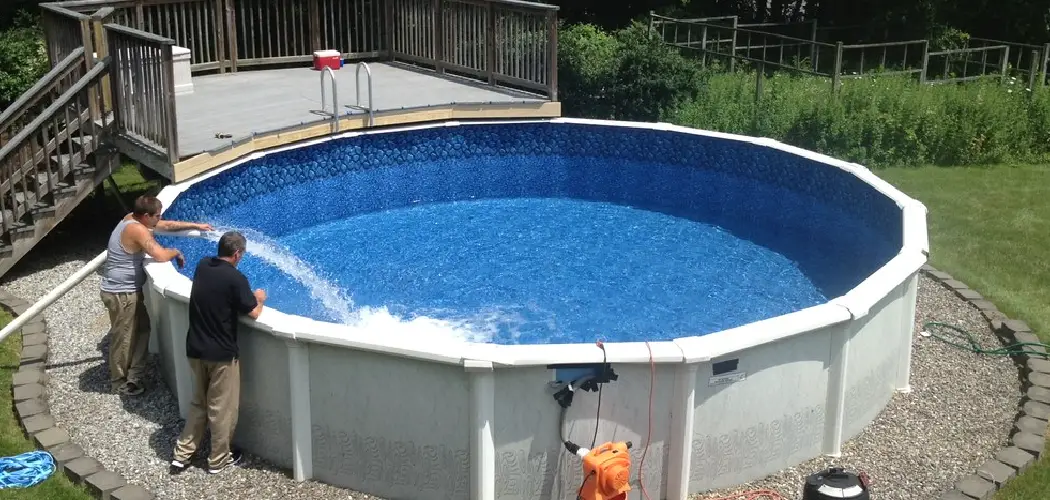Are you searching for an alternative way to keep your above ground pool water clean and clear? Have you considered the benefits of using salt water in an above ground swimming pool? Saltwater technology offers several advantages over regular chlorine treatments, including lower maintenance costs and fewer environmental impacts.
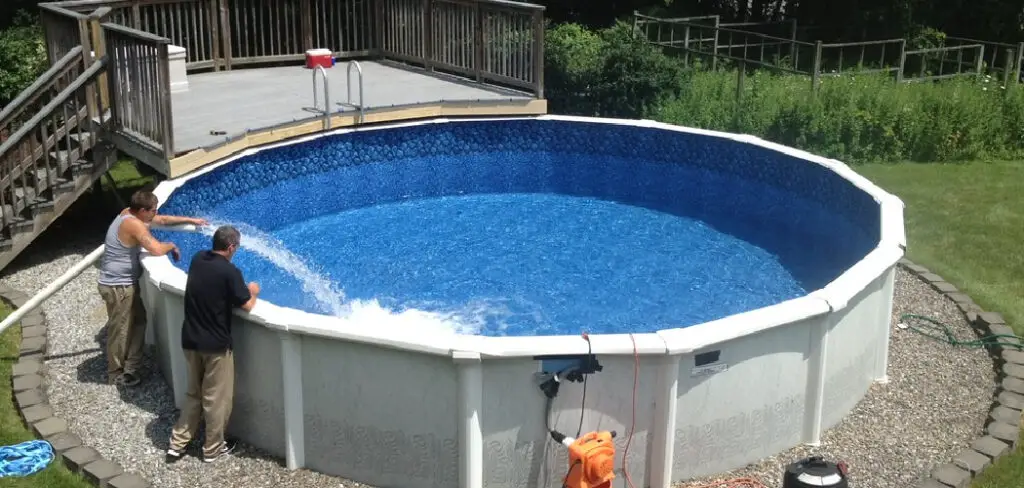
In this blog post, we’ll discuss how to utilize salt water in an above ground swimming pool, as well as the many perks that come with it. Read on for more information about why and how to use salt water in above ground pool!
Why May You Want to Use Salt Water in Above Ground Pool?
1 . To Save Money
Many people prefer using salt water in their above-ground pool because it can save them money in the long run. While installing a salt water generator is an expensive initial cost, it eliminates the need to constantly buy and add chlorine to your pool. Salt pools also require less maintenance than traditional chlorine pools, which reduces the amount of money spent on chemicals and cleaning services. In addition, salt water is often gentler on skin and eyes compared to chlorine. For individuals with sensitive skin or allergies, using salt water can help reduce irritation caused by pool chemicals.
2 . To Improve Water Quality
In a traditional chlorine pool, the harsh chemicals required to maintain safe levels of chlorine can create an unpleasant smell. This odor is often amplified in smaller above-ground pools. On the other hand, salt water pools have much lower chlorine levels which results in a more pleasant swimming experience with less harsh chemicals involved. Additionally, salt water is known for its natural antibacterial and antifungal properties, making it an ideal choice for keeping pool water clean and clear.
3 . To Help the Environment
While traditional pool chemicals can be harmful to the environment, salt water is a more eco-friendly alternative. Salt pools use a natural process called electrolysis to produce chlorine, eliminating the need for harsh chemicals and reducing the amount of waste released into the environment. In addition, since saltwater pools require less maintenance and fewer chemicals, they can also have a smaller carbon footprint.
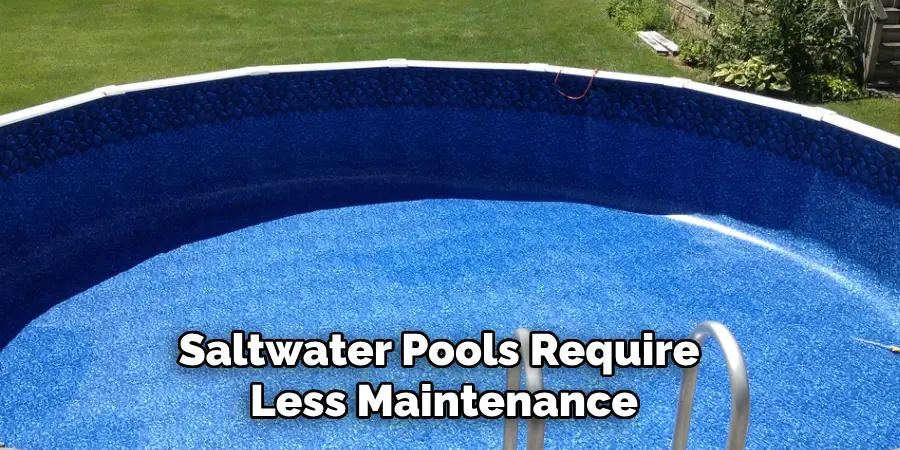
How to Use Salt Water in Above Ground Pool in 5 Easy Steps
Step 1: Introduction to Salt Water in Above Ground Pool
Salt water pools are becoming increasingly popular among pool owners due to their convenience and cost efficiency. Unlike traditional chlorine pools, salt water pools use a salt chlorinator to convert the salt into chlorine, providing a constant supply of clean and sanitized water.
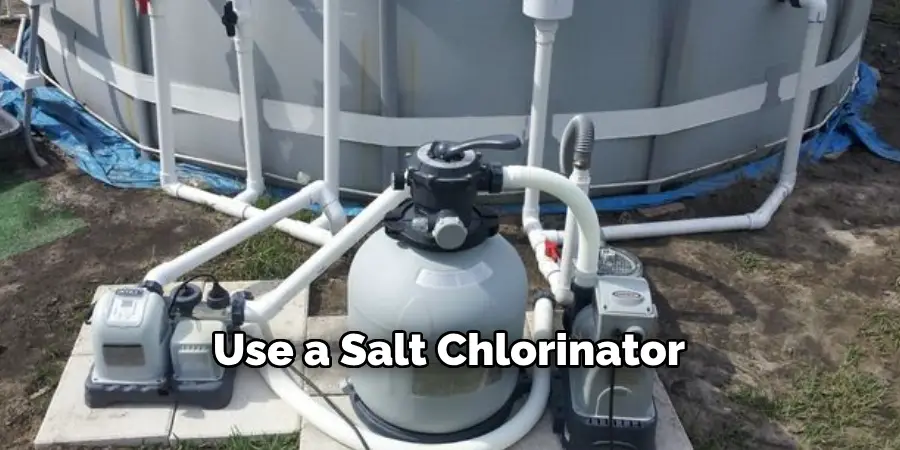
If you own an above ground pool, you may be wondering how you can switch from using traditional chlorine to salt water. In this guide, we will walk you through the steps of using salt water in your above ground pool.
Step 2: Prepare Your Above Ground Pool
The first step towards using salt water in your above ground pool is preparing it for the new system. Start by testing your pool’s pH and alkalinity levels and make any necessary adjustments before switching to salt water. You will also need to purchase a salt chlorinator system, which can be found at most pool supply stores.
Step 3: Install the Salt Chlorinator System
Once you have purchased your salt chlorinator, follow the manufacturer’s instructions to install it onto your above ground pool. This usually involves attaching the system to your pool’s existing filtration system and adding the necessary amount of salt to your pool.
Step 4: Add Salt to Your Pool
The key ingredient in a saltwater pool is, of course, salt. It is important to use only pure, high-quality salt that is specifically designed for use in pools. Follow the recommended salt levels according to your pool’s size and the instructions from your salt chlorinator system. It may take a few days for the salt to fully dissolve and distribute in your pool, so be patient.
Step 5: Maintenance and Monitoring
After following the previous steps, your above-ground pool should now be ready to use with salt water. However, it is important to regularly check and maintain your pool’s pH and salt levels to ensure that they are within the recommended range. You should also clean your salt chlorinator regularly to prevent any buildup and ensure its proper functioning.
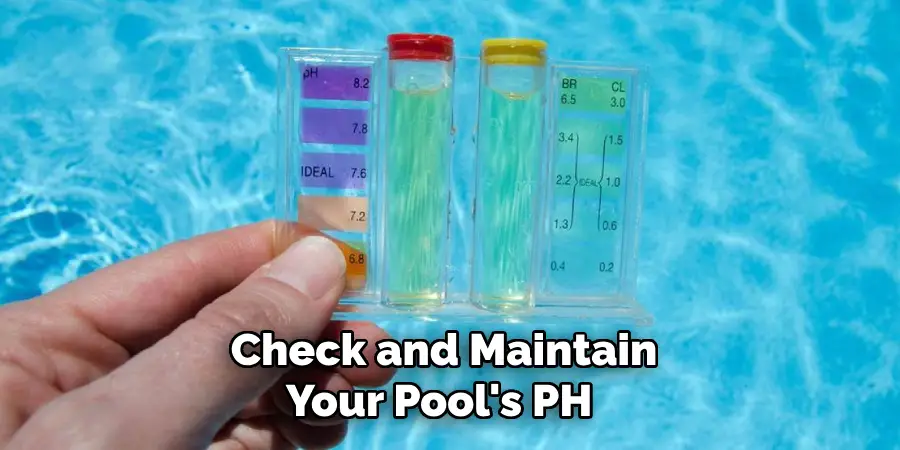
Some Extra Tips to Use Salt Water in Above Ground Pool
1 . Do Not Add Salt Water While The Pool is Off
In order to properly maintain the salt levels in your pool, it is important to add salt while the pool pump is running. This will ensure that the salt is distributed evenly throughout the pool and prevents any uneven concentrations.
2 . Use a Salt Test Kit
It’s crucial to regularly test the salt levels in your above-ground pool when using salt water. This will allow you to adjust the salt levels as needed and prevent any potential damage to your pool or equipment.
3 . Keep Other Chemical Levels Balanced
While salt water can help maintain a clean and clear pool, it is still important to regularly test and balance other chemical levels such as pH, alkalinity, and calcium hardness. These levels can affect the effectiveness of salt water and also prevent any damage to your pool and equipment.
4 . Clean Your Salt Water Generator Regularly
If you are using a saltwater generator, it is important to regularly clean and maintain it as per the manufacturer’s instructions. This will ensure that the generator is functioning properly and not causing any issues with your pool water.
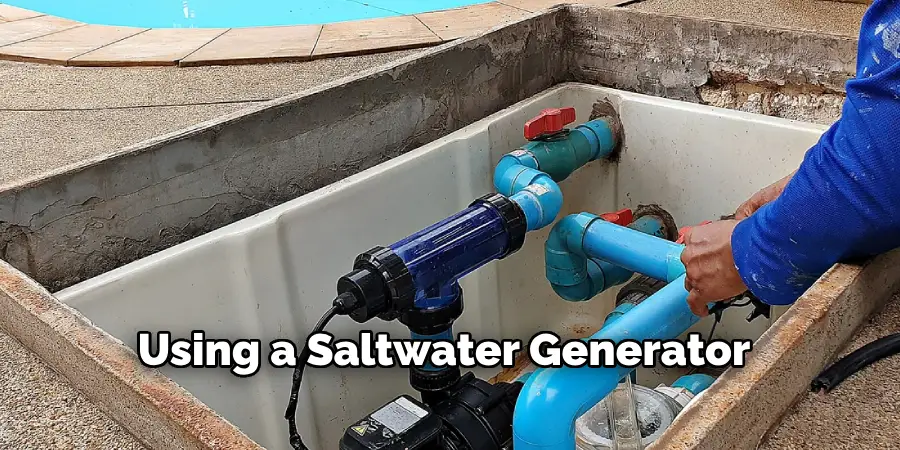
5 . Monitor Salt Levels During Heavy Rain
Heavy rain can dilute the salt levels in your pool, causing it to drop below the recommended range. It is important to monitor and adjust the salt levels accordingly during periods of heavy rain.
6 . Use a Skimmer or Brush to Mix Salt into Pool Water
Once you have added salt to your above-ground pool, use a skimmer or brush to mix it into the pool water. This will help evenly distribute the salt and prevent any concentrated areas.
7 . Consider Using Stabilizer
Using a stabilizer can help protect your salt from being broken down by UV rays, which can affect its effectiveness. Consult with a professional for advice on whether using stabilizer is necessary for your above-ground pool.
Overall, using salt water in your above-ground pool can be a great way to maintain clean and clear water. By following these extra tips, you can ensure that your pool stays in top condition and provides an enjoyable swimming experience for all.
Frequently Asked Questions
What Precautions Should I Take When Using Salt Water in My Above-Ground Pool?
When using salt water in your above-ground pool, there are a few precautions you should take to ensure the best results and maintain the health of your pool. First, it is important to note that not all above-ground pools are compatible with saltwater systems. It is essential to check with your manufacturer or consult a pool professional before converting to salt water. Additionally, you should regularly test the chemical levels in your pool and adjust as needed to maintain proper balance. Also, be sure to follow the instructions provided by your saltwater system manufacturer for optimal use.
How Do I Convert My Above-Ground Pool to Use Salt Water?
Converting your above-ground pool to use salt water is a simple process, but it does require some initial setup. The first step is to purchase a saltwater system compatible with your pool size and shape. Then, you will need to add the required amount of salt to your pool based on its volume. Once this is complete, you can install the saltwater system according to the manufacturer’s instructions. After installation, be sure to test the water and adjust the chemical levels if necessary.
How Often Should I Add Salt to My Above-Ground Pool?
Salt should only need to be added to your above-ground pool when necessary. Typically, this will occur after heavy rainfall or frequent use of your pool. However, it is always best to regularly test the salt level in your pool and add more as needed to maintain the recommended range. When adding salt, it is important to dissolve the salt fully before turning on your pump and filter system.
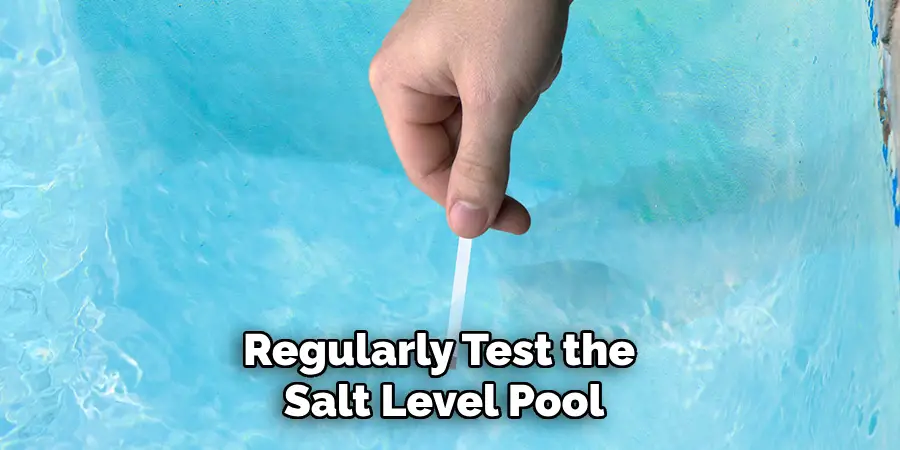
Can I Use Regular Table Salt in My Above-Ground Pool?
No, regular table salt is not suitable for use in an above-ground pool with a saltwater system. It can contain additives that may harm your pool or cause damage to your system. It is essential to use only pool-grade salt, also known as pure, evaporated salt or solar salt. This type of salt is free of additives and will not cause any harm to your pool or system.
How Do I Maintain My Saltwater System?
Maintaining your saltwater system is relatively easy and requires minimal effort. Regularly check the chlorine and pH levels and adjust as needed to keep the water balanced. It is also recommended to clean or backwash your filter system regularly to remove any buildup of debris and maintain proper flow. Additionally, you should inspect your salt cell periodically and clean it if necessary to ensure optimal function.
Conclusion
After taking the time to review and understand how salt water works in an above ground pool, you are now fully equipped with all the necessary information to make an educated decision on how to use salt water. When deciding if a saltwater pool is best for your needs, remember that it simplifies the chlorination process, making pool maintenance easier than ever.
Now you know how to use salt water in above ground pool! Meanwhile, you’ll need to consider the upfront costs of a quality chlorine generator and ongoing expenses of buying salt pellets as they are used up over time. With these considerations in mind, why not give saltwater a try? All you have to do is install a chlorine generator and relax as you enjoy your low-maintenance swimming experience in a crystal clear pool!
About
Outdoor Fixes is a distinguished figure in the world of Diy design, with a decade of expertise creating innovative and sustainable Diy solutions.
His professional focus lies in merging traditional craftsmanship with modern manufacturing techniques,
fostering designs that are both practical and environmentally conscious. As the author of diy,
outdoorfixes delves into the art and science of outdoorfixes-making, inspiring artisans and industry professionals alike.
Education RMIT University
(Melbourne, Australia) Associate Degree in Design (Outdoor Fixes) Focus on sustainable design, industry-driven projects,
and practical craftsmanship. Gained hands-on experience with traditional and digital manufacturing tools, such as CAD and CNC software.
Nottingham Trent University
(United Kingdom) Bachelor’s in outdoorfixes.com and Product Design (Honors) Specialized in product design with a focus on blending creativity with production
techniques. Participated in industry projects, working with companies like John Lewis and Vitsoe to gain real-world insights.
Publications and Impact
In diy, Outdoor Fixes his insights on indoor design processes, materials, and strategies for efficient production.
His writing bridges the gap between artisan knowledge and modern industry needs, making it a must-read for both budding designers and seasoned professionals.

